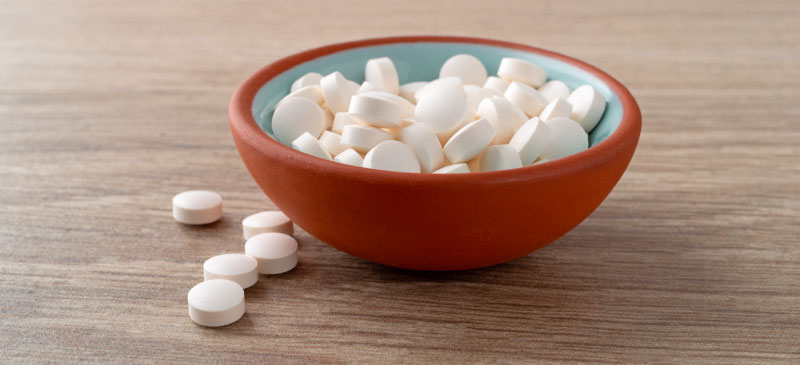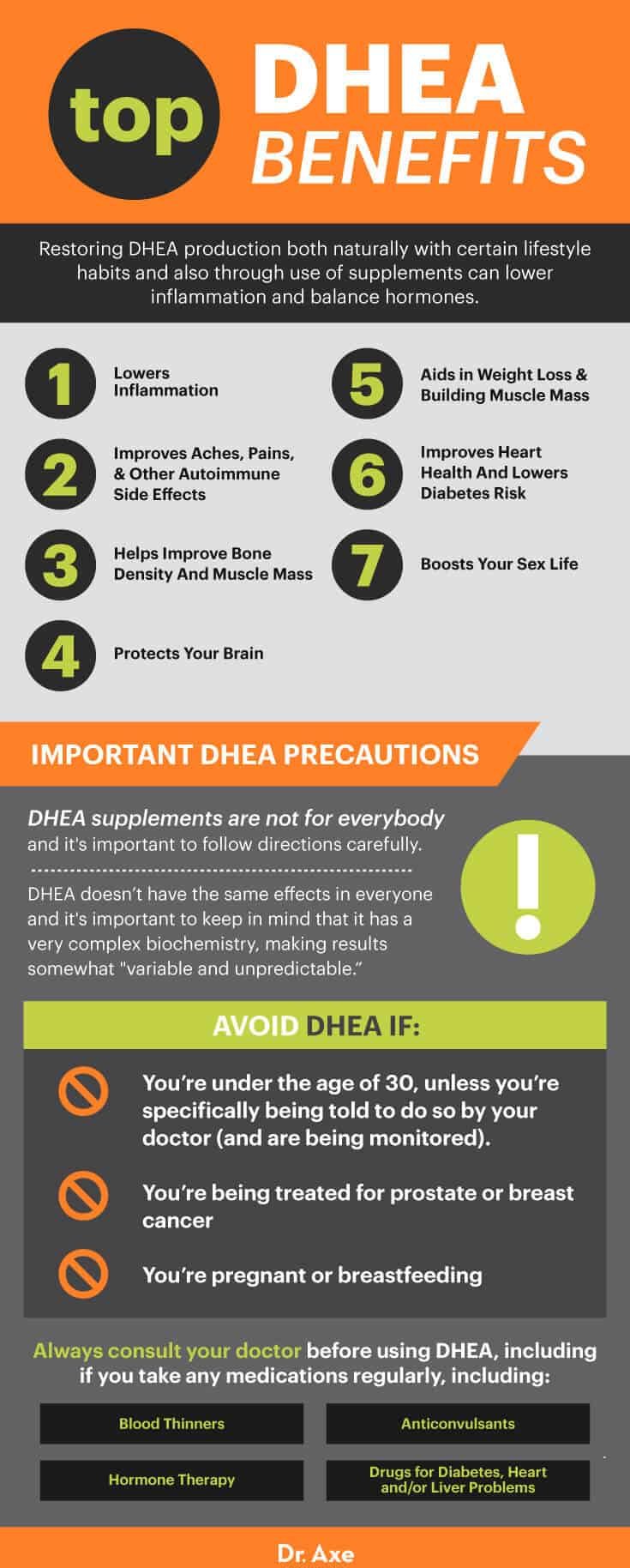This Dr. Axe content is medically reviewed or fact checked to ensure factually accurate information.
With strict editorial sourcing guidelines, we only link to academic research institutions, reputable media sites and, when research is available, medically peer-reviewed studies. Note that the numbers in parentheses (1, 2, etc.) are clickable links to these studies.
The information in our articles is NOT intended to replace a one-on-one relationship with a qualified health care professional and is not intended as medical advice.
This article is based on scientific evidence, written by experts and fact checked by our trained editorial staff. Note that the numbers in parentheses (1, 2, etc.) are clickable links to medically peer-reviewed studies.
Our team includes licensed nutritionists and dietitians, certified health education specialists, as well as certified strength and conditioning specialists, personal trainers and corrective exercise specialists. Our team aims to be not only thorough with its research, but also objective and unbiased.
The information in our articles is NOT intended to replace a one-on-one relationship with a qualified health care professional and is not intended as medical advice.
Is a DHEA Supplement Right for You?
June 24, 2023

When it comes to DHEA and DHEA supplements, you may immediately think of bodybuilders. That’s because DHEA (technically, dehydroepiandrosterone) is considered a “pro-hormone” tied to longevity, lean muscle mass and a strong body.
But DHEA’s uses go far beyond improving someone’s body composition — it also helps improve bone density, promotes heart health, controls cholesterol levels, fights fatigue and improves production of important sex hormones like testosterone and estrogen.
What Is DHEA?
The truth is we all (men and women) naturally create DHEA in our bodies — the hormone plays a role in more than 150 different metabolic functions. In fact, it’s one of the most abundant hormones in the human body.
The adrenal glands are the primary producers of naturally occurring DHEA, but men also secrete it from their testes. Once produced, your body converts it to several other hormones, including androstenedione and several sex hormones, earning it the nick name “the parent hormone.”
In some ways, DHEA works like a natural anabolic steroid, since it boosts production of natural growth hormones that help build lean muscle mass and fight fat accumulation. That’s why the supplement form is popular among athletes and bodybuilders. In fact, although they’re normally very safe, the National Collegiate Athletic Association (NCAA) banned DHEA supplements because their benefits can be very strong.
DHEA levels naturally start to decline after the age of 30, which is precisely when many adults start to experience weight gain, sluggishness, lowered libido and other symptoms caused by higher levels of inflammation.
Considered to be one of the most rapidly-decreasing hormones in the human body, it pays to hold onto all the DHEA that you can. Every decade of life after the age of 30, DHEA loss accelerates. By the time someone reaches the age of about 75, they produce only about 10 to 20 percent of the original DHEA they created in their youth.
How It Works
The body makes DHEA on its own and then converts some DHEA to testosterone and estrogen, two powerful sex hormones needed for many different body functions beyond just reproduction. These hormones are important for maintaining high energy levels, a strong metabolism, heart, brain and bone health, which is why natural declines in levels in these hormones associated with aging can result in many unwanted symptoms.
There are no natural food sources of DHEA, although a few foods like yams and soybeans are used to create a synthetic version for supplements. These foods contain chemical substances that are very similar to DHEA so they can be altered in lab settings to create “bio-identical” DHEA hormones.
Because DHEA levels decrease with age, evidence shows that adults over the age of 30 acquiring or producing more DHEA enjoy better protection against numerous age-related diseases and loss in physical functions. Lower levels of hormones, including DHEA, even predict earlier death in older adults.
One of the most compelling reasons to use DHEA supplements involves their ability to boost the immune system and block disease reactivity. Clinical trials suggest that supplementing with DHEA can help lower inflammation and improve insulin sensitivity, allowing for better management of blood sugar levels and conditions like diabetes and heart disease. It’s also beneficial for boosting protein synthesis and therefore building bone density and lean muscle mass, helping to improve exercise performance and to lower common aches and pains.
It’s important to note that while DHEA seems to be beneficial for many older adults, studies done over the past several decades produced conflicting and inconsistent findings overall. Some people suffering from a lack of energy, sexual dysfunction, autoimmune reactions and other problems seem to improve greatly with DHEA use, but others might experience negative side effects, interactions or simply no results at all. Overall, it’s worth talking to your doctor about and doing your research before starting any DHEA supplement program.
Benefits
1. Lowers Inflammation
Chronic inflammation is the root of most diseases and is tied to just about every age-related health problem that exists. Restoring DHEA production, both naturally with certain lifestyle habits and also through use of supplements, can improve many youthful qualities. DHEA’s ability to lower inflammation and balance hormones helps facilitate higher energy levels, a leaner body and more vitality. DHEA taken in supplement form boosts certain hormone levels (like testosterone and estrogen), helps prevent autoimmune reactions and mood disorders like depression and improves overall quality of life in many ways.
Research shows that people with metabolic syndrome — a term characterized by a combination of risk factors related to high inflammation such as obesity/being overweight, having high cholesterol, high blood pressure and diabetes — tend to have lower levels of DHEA. Studies also show that obese adults tend to produce less DHEA compared to healthy weight adults. Scientists also associate low DHEA with inflammatory autoimmune disorders like lupus and arthritis.
Studies involving women with autoimmune disorders like lupus and thyroid disorders suggest that low DHEA levels negatively impact internal organs, the skin and the immune system. Research also suggests that DHEA supplementation may help improve symptoms of aches and pain, ongoing fatigue and inflammatory skin reactions safely without many, or any, side effects in many adults.
2. Helps Improve Bone Density and Muscle Mass
DHEA is associated with anti-aging effects that help protect bone loss and lower the risk for fractures or conditions like osteoporosis. Apart from aging, bone loss occurs at higher rates in people with thyroid or autoimmune disorders, poor diets, sedentary lifestyles, eating disorders and hormonal imbalances.
Some evidence suggests that higher DHEA levels improve estrogen production, resulting in higher bone mineral density in older or post-menopausal women. These women are most at risk for bone-related disorders.
Since sports organizations like the NCAA added DHEA supplements to their banned list, there’s been a lot of backlash. DHEA is not a synthetic steroid or performance enhancer that promotes abnormal muscle growth. It actually works more like a repair signal that helps the body recover from intense training and physical activity. It helps cells take up glucose for energy, supports many different functions of the metabolism and prevents fat accumulation, especially dangerous visceral fat.
3. Protects Against Depression, Cognitive Decline and Mood Swings
According to some studies, higher levels of DHEA may lower rates of major depression and improve overall emotional stability. Research suggests that supplementing with 25 to 200 milligrams of DHEA (depending on the individual case) can help lower depression and mood-related symptoms, including loss of pleasure (called anhedonia), loss of energy, lack of motivation, emotional “numbness,” sadness, irritability, inability to cope with stress and excessive worrying.
DHEA helps balance production of other hormones needed to maintain a positive outlook, energy and motivation, such as testosterone and estrogen. It also lowers the risk for many health conditions and symptoms, some of which contribute to depression. These include weight gain, sexual dysfunction, infertility and adrenal insufficiency (a serious condition in which the adrenal glands do not make enough hormones).
According to the National Institute of Health, DHEA can be used to slow or reverse cognitive decline as a result of aging, including improving thinking skills in older people and slowing the progression of Alzheimer’s disease. However, high doses are often needed to achieve these results, which can be risky. Several studies found that taking 50 milligrams of DHEA daily for four weeks might also help improve vision and memory loss in middle-aged and older adults.
4. Aids in Weight Loss and Building Muscle Mass
DHEA supplements are often used to help promote weight loss and to support athletic training with a focus on building lean muscle mass. 7-Keto, one type of DHEA supplement, helps adults maintain strong metabolism levels while aiding in the prevention of age-associated fat gain and muscle loss. It’s certainly not a magic bullet for weight loss, but it can be helpful for some people.
While calorie intake and energy expenditure are important factors involved in managing your weight, hormones play a crucial role, too. DHEA helps improve the body’s natural ability to use energy and burn fat, two metabolic processes that usually decline as someone ages. DHEA helps shuttle glucose to cells for energy, reduce insulin levels and stimulate fat burning. As I mentioned earlier, DHEA improves lean muscle mass. This helps you more efficiently burn calories, even while resting.
5. Improves Heart Health and Lowers Diabetes Risk
Acquiring more DHEA is linked to a lower risk of clogged arteries, blood clots, high cholesterol, heart disease and insulin resistance/diabetes in adults, although researchers still aren’t exactly sure why. DHEA may improve blood vessel function and reduce the risk for heart disease and diabetes by lowering inflammation, supporting a healthy metabolism, improving use of glucose and insulin and improving production of sex hormones.
Results of animal studies suggest that DHEA protects against the increase in dangerous visceral fat and the development of insulin resistance induced by a poor diet and lifestyle. Other research shows DHEA plays a protective role in the development of atherosclerosis (hardening of the arteries) and coronary heart disease by interfering with atherogenic processes and enzymes such as glucoso-6-phosphate dehydrogenase.
6. Decreases Sexual Dysfunction and Can Improve Libido
Although it’s not fool-proof or without risk for side effects, DHEA has helped many people overcome sexual dysfunctions, loss of libido, erectile dysfunction, hormonal imbalances and menopause symptoms like vaginal dryness. Study results over the years have been mixed, but some research demonstrates that lower levels of DHEA occur in men with erectile dysfunction. DHEA supplementation can benefit both men and women with various symptoms related to declining sex hormones, according to some studies.
Low testosterone and hormone deficiency in men (also sometimes called partial androgen deficiency) contribute to problems like aches, pains, weight gain, loss of functioning and sexual problems, but some research suggests that taking 25 milligrams of DHEA daily for one year might improve these symptoms.
Other evidence shows that taking DHEA for six months helps lower sexual symptoms related to nerve damage and diabetes, such as impotence. Women taking 10 to 25 milligrams of DHEA daily could see a decrease in certain menopausal symptoms like hot flashes, vaginal dryness and weight gain.

Dosage
As you can see, DHEA offers a host of benefits. Still, more is not always better. It’s best to take DHEA supplements in low doses at first to give your body time to acclimate, and then gradually increase the amount over several months. Even when someone is around 25-years-old, they only produce 40 to 70 milligrams daily of DHEA, so supplements should be taken in relatively small doses. High dose pills should raise concern.
Because there is no guarantee of strength, purity or safety of DHEA products (they are not usually regulated by the Food and Drug Administration), it’s important to read labels, do your research when buying supplements and follow directions. It’s advised that you try to purchase DHEA directly from a doctor in order to ensure it’s authentic and not contaminated. DHEA comes in capsule, tablet, chewing gum, sublingual (under the tongue) drop and topical (on the skin) cream form, but the type you’ll want to use depends on what you’re using it for.
- According to the National Institute of Health, research suggests that taking between 20 to 50 milligrams of DHEA supplements daily should be sufficient and safe for most adults over the age of 30. Individual needs will vary, but less is usually better, especially at first.
- In some cases, DHEA is administered in high doses up to 200 to 500 milligrams daily to help treat certain disorders such as depression or lupus, but this should only be done under medical supervision.
- For treatment of major depression, cognitive decline and schizophrenia, 25 milligrams taken twice daily for six weeks is recommended.
- For improving bone healing and bone mineral density, 50 to 100 milligrams per day is recommended.
- For erectile dysfunction, menopausal symptoms and vaginal dryness, 25 to 50 milligrams per day is best.
Risks and Side Effects
DHEA is a powerful hormone and therefore works differently than other vitamins, minerals or supplements. Hormones are not easily excreted through urine and can cause problems when they are taken or produced in excess amounts, since all hormones need to balance each other out and work together. DHEA doesn’t have the same effects in everyone, and it’s important to keep in mind that it has a very complex biochemistry, making results somewhat “variable and unpredictable.”
DHEA supplements are not for everybody, and it’s important to follow directions carefully.
- People under the age of 30 should not use DHEA supplements, unless they are specifically being told to do so by their doctor and are being monitored. That’s because younger people under 30 tend to produce enough DHEA on their own, and taking more has the potential to alter levels of other hormones. Since it is converted to other sex hormones, taking too much DHEA can cause symptoms like acne, irregular periods, fertility problems, facial hair growth in women and elevated testosterone.
- Men being treated for prostate cancer should also not take DHEA, since a common way to treat and manage prostate cancer is to lower testosterone levels through medications. Taking extra DHEA can be counterproductive to this type of treatment and can slow recovery or cause side effects. Similarly, women being treated for breast cancer should also avoid DHEA supplements since it can increase estrogen, which is tied to higher risk for breast cancer development.
- Women who are pregnant or breastfeeding should not use DHEA because it affects sex hormones levels. For women looking to get pregnant in the near future, it’s best to get their doctor’s advice first.
- If you take any medications regularly (including blood thinners, anticonvulsants, hormone therapy and drugs for diabetes and heart or liver problems) or you have an existing serious medical condition, always talk to your doctor before you start using DHEA supplements to err on the safe side.
Final Thoughts
We all create DHEA in our bodies, however, levels of the hormones begin to drop off after the age of 30, increasing the risk for low-DHEA-related issues like inflammation, sexual dysfunction and mood disorders, among other issues.
DHEA supplementation helps improve lean muscle mass and promotes hormone balance. It is generally considered safe when taken in low doses. However, taking DHEA isn’t for everyone, and it isn’t a magic bullet. Not everyone who takes DHEA sees improvement, and some even experience negative side effects. Be sure to consult with your medical provider before taking DHEA supplements.




